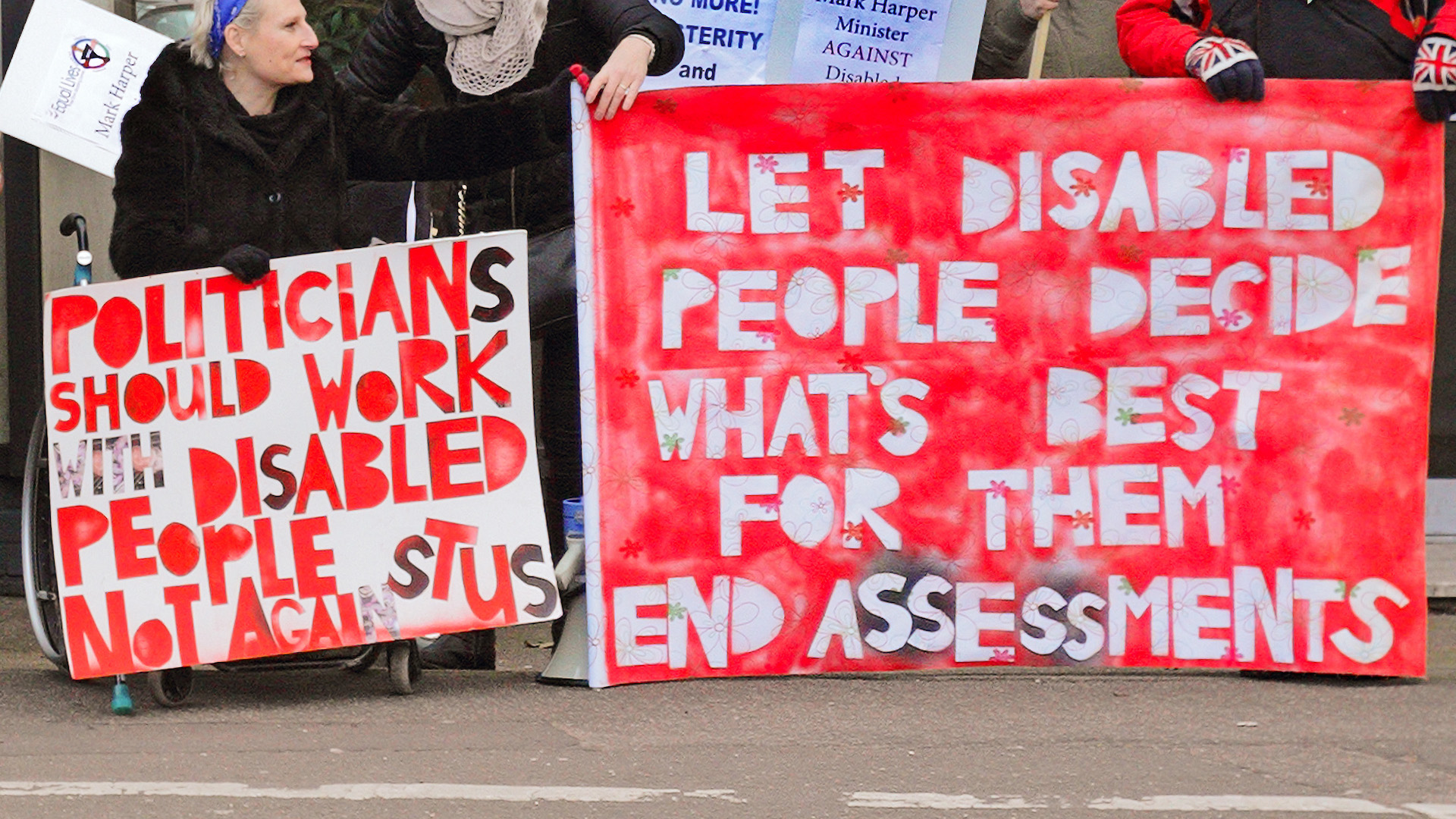The work capability assessment works by scoring applicants based on their disabilities and their ability to perform certain activities. Points are awarded for different ‘descriptors’ – physical functions such as mobility and manual dexterity, and mental functions such as learning tasks and coping with social engagement.
Applicants who score the highest are placed in the LCWRA (limited capability for work related activity) group, meaning they receive universal credit disability payments and have no work-related conditions.
Those scoring below the highest levels, but still enough to qualify for support, are placed in the LCW (limited capability for work) group – they have to prepare for a return to the workplace, but do not have to actually look for jobs. Those who score low receive no disability payments under universal credit and are expected to look for work.
The DWP proposals are that mobility problems will no longer be enough by themselves to qualify for the LCWRA group; that difficulties getting from the applicant’s home to a specified place will in future score lower in relation to the LCW group; and that the substantial risk regulations, under which people whose mental health would be harmed by undertaking work-related activity, are instead placed in the LCWRA group, would only apply in exceptional cases.
Some disabled people would lose up to £390 a month under these new reforms, and many could also face sanctions and risk losing some or all of their benefit payments if they do not comply with new conditions that could be imposed on them.
Around 230,000 people with serious mobility problems preventing them from working could miss out on the extra health element of universal credit by 2029, according to figures from the Office for Budget Responsibility (OBR) requested by charity Z2K.
Advertising helps fund Big Issue’s mission to end poverty
A further 141,000 people with mental health conditions could be impacted by 2029. Z2K warns this could put them and others around them at “substantial risk of harm” under the DWP’s conditionality regime.
According to Clifford, the impact this could have on people was not made clear during the consultation. “Deaf and Disabled voices should be heard. Instead, our income is being cut and we are told the change is about ‘realising our potential’. This is patronising and insulting.
“As we’ve been granted permission to take the DWP to court, we hope that the secretary of state abandons any plans to implement the work capability assessment reforms until this legal challenge has concluded and Deaf and Disabled people have been given a proper opportunity to provide their views on the proposals. Deaf and Disabled peoples’ organisations and campaign groups are completely opposed to these proposed changes.”
The judicial review is being pursued on four grounds:
- the consultation period was too short
- the consultation did not properly explain the reforms – for example, it did not make clear that some people could lose up to £390 a month
- the proposals are not rationally connected to the government’s stated objective of helping more disabled people into work, with very few of those affected forecast to get jobs
- people could not respond properly to the consultation as information about the impact of the proposals was not provided
Aoife O’Reilly, a lawyer with Clifford’s representatives Public Law Project, said: “The consultation about changes to the work capability assessment was too rushed for many Deaf and Disabled people to respond to properly and didn’t clearly inform them about the impact that reforms would have.
“They also should have been told that the proposal was meant to reduce spending on disability benefits, if that was the real rationale. It was incumbent on DWP to provide those it was consulting with information it had about the potential impact of proposals – that was missing from the consultation documents.”
Advertising helps fund Big Issue’s mission to end poverty
The government has also announced plans to change the ‘fit note’ system to sickness absence, and a forthcoming consultation to reform the separate personal independent payment disability benefit.
A DWP spokesperson told the Big Issue: “It would not be appropriate to comment on ongoing legal proceedings.”
The Big Issue magazine exists to give homeless, long-term unemployed and marginalised people the opportunity to earn an income. To support our work buy a copy!
If you cannot reach your local vendor, you can still click HERE to subscribe to The Big Issue or give a gift subscription. You can also purchase one-off issues from The Big Issue Shop or The Big Issue app, available now from the App Store or Google Play









